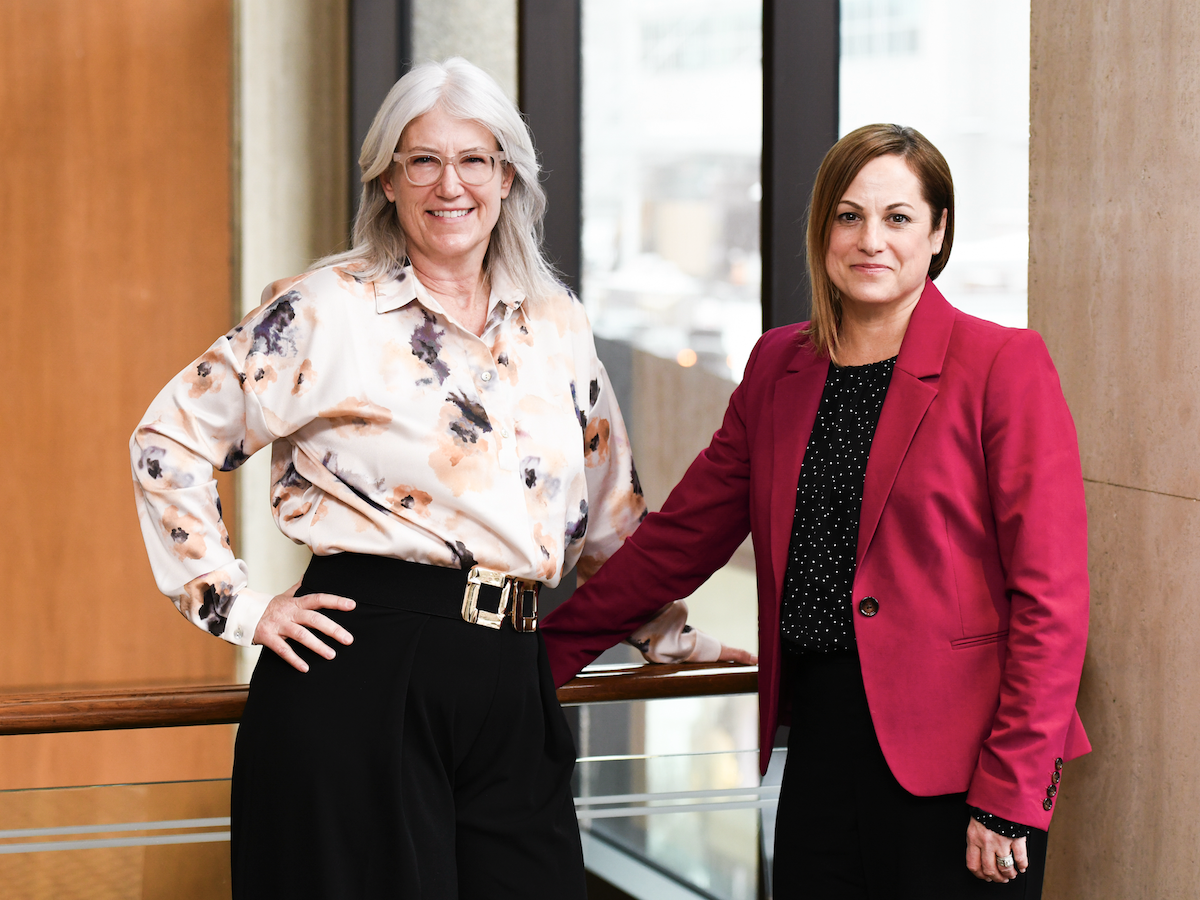
With climate change affecting the planet and artificial intelligence disrupting the concept of work, a profound generational shift is underway in how young people are thinking about their futures.
“When previous generations worried about retirement, they mainly focused on financial risk, market turndown, inflation and health-care costs,” said Kelly Peters (pictured left), behavioural economics leader and partner at Deloitte, during a session at Benefits Canada’s 2025 Defined Contribution Plan Summit. “But many of your gen Z members, friends and family are grappling with a more fundamental question: Will the world as we know it even exist in 40 years?”
This creates a unique challenge for the pension industry, she added, noting gen Z is the first generation in the workplace where existential risk is part of daily discourse. They’ve grown up surrounded by narratives of an unsustainable future, so any skepticism about traditional retirement planning reflects legitimate concerns.
Read: Fewer millennials, gen Z employees on track to save for retirement: survey
To help understand this response, Peters explored some key psychological insight, including: extreme present bias (immediate security versus an illusory future); high-risk behaviour (the opposite of the traditional messaging around long-term investing); ambiguity aversion (why many people prefer keeping assets liquid over traditional retirement vehicles); and an emotional response disconnect (rosy retirement visions that can feel unrealistic).
“Understanding these psychological factors is crucial because our traditional approaches to retirement planning just don’t address them.”
Next, she looked at how these factors are translating into real behaviours, referring to a survey from February 2024 that found 38 per cent of gen Z are putting off retirement entirely. In addition, while there appears to be a greater reliance on professional advice, said Peters, plans aren’t being implemented. “This reflects that ambiguity aversion I presented: seeking expert guidance but then hesitating to commit to long-term decisions.”
She suggested the pension industry apply behavioural science insights to make fundamental shifts in how it approaches retirement planning, “because we need to move beyond traditional, economic-based assumptions about rational decision-making and design for how humans actually process uncertainty and risk.”
Read: How Poland’s new DC program was designed using behavioural science
These shifts include: overhauling communications strategies to acknowledge gen Z’s concerns; rethinking member education to de-bias their risk perceptions; and considering program features. “This means things like reframing retirement savings as future resilience funds or long-term security accounts, maybe creating more flexible access, features that balance protection with adaptability.
“When we help gen Z build financial security, we’re not just giving them hope for retirement, we’re helping transform fear of the future into the hope of changing it,” added Peters. “That’s not just good pension administration. That’s good for humanity.”
Also speaking during the session, Kate Nazar (pictured right), vice-president of group retirement services at Canada Life, highlighted product design and engagement strategies, while taking a different lens due to gen Z’s different mindset, ultimately pointing to hope and optimism.
“There are psychological benefits that have been demonstrated through research on the role of hope and optimism,” said Peters, noting this leads employees to feel empowered, curious and that there’s a future worth working towards.
And the contagion effect, she added, is that customers or stakeholders can also become beneficiaries. “It’s healthy and necessary to be able to take an objective view and to be able to factor this in, in order for us to build out that hope and sense of resilience for the future.”
Read more coverage of the 2025 DC Plan Summit.
